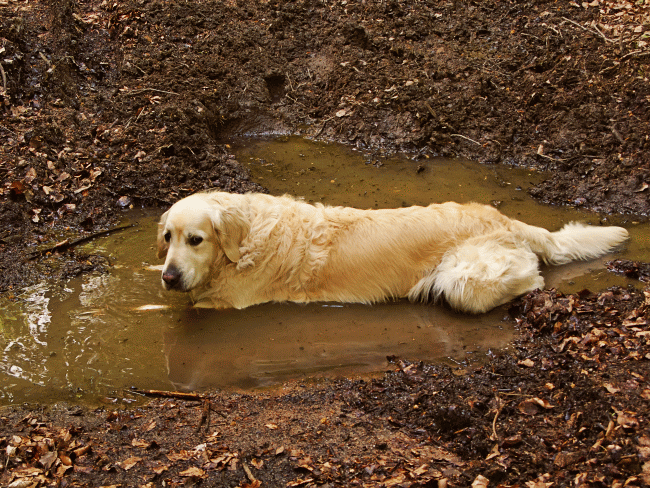
There is a reason why phrase “it smells like a wet dog in here” can turn up our noses. Pups are always up for an adventure, and will happily charge right into a swamp, river, pile of garbage, manure, muddy field, or wherever else their fancy takes them. This often creates a repugnant conglomeration of smells at the end of the day, which make pet owners reel away when their pooch swoops in for a smooch.
Fortunately, most of these torturous smells can be whisked away with a scented shampoo or some body spray. But what happens if the dog still smells disgusting, even after his bath? If no amount of air freshener will solve the stench, there could be a deeper problem going on in the dog’s body.
Possible Causes
While there may be countless reasons why your pup is so smelly, below are some causes you may not have considered.
- Ears: Waxy build up in the ears is common in humans and dogs, but sometimes these moist and dark areas provide the perfect place for bacteria to fester. Yeast infections of the ear are enough to make a dog stink to high heaven if they are not cleaned frequently.
- Mouth: Some people claim to love “puppy breath” but we doubt they’d feel the same way if your dog was panting next to them. Bad breath can come from plaque buildup, trapped food, or gum disease and infections.
- Anal sacs: Groomers generally take on the tricky challenge of expressing anal glands when they become too swollen. This putrid odor lets other animals know when your dog has “marked” his territory, but if the sacs get infected, or have secreted onto the surrounding fur, the result will be a very unpleasant smell.
- Skin: Scratch wounds, cuts and scrapes from itchy skin and allergies sometimes incur bacterial growth, or fungal infections which can contribute to a dog’s stench. (Be advised, this is much more likely to happen in humid climates or warmer months of the year.)
Body Odor Remedies
- Improve the diet. Avoid mainstream pet foods that trick a dog into liking the flavors, when the product is actually full of harmful fillers, fats, animal “by-products” and other low-quality ingredients that may play a role in your dog’s overall digestion and physical wellness. A diet of natural archetypal foods will keep the pet’s body working in top condition. Clean eating means clean sweating!
*Note: Help your pup cleanse internally by giving him a small dose of supplements that rid the body of odor-causing toxins, such as wheat grass, barley, and chlorophyll. - Use medicated shampoo. Medicated shampoos containing anti-yeast properties will help restore your dog’s coat to its natural healthy state. To ward off future infections and yeast build up, keep the shampoo handy and find out from your vet how often you can use it on your pet. (Next time it’s bath day, add a few tablespoons of vinegar for an extra kick of cleansing!)
- Check with a vet. If your pet does not seem to be improving when it comes to his body odor, it may be due to a physical condition such as tooth decay (which effects internal organs and can be very dangerous), infections, or kidney disease. If the body odor is relentless in spite of the changes you’ve made, it is time to take your stinky pal to the vet.

